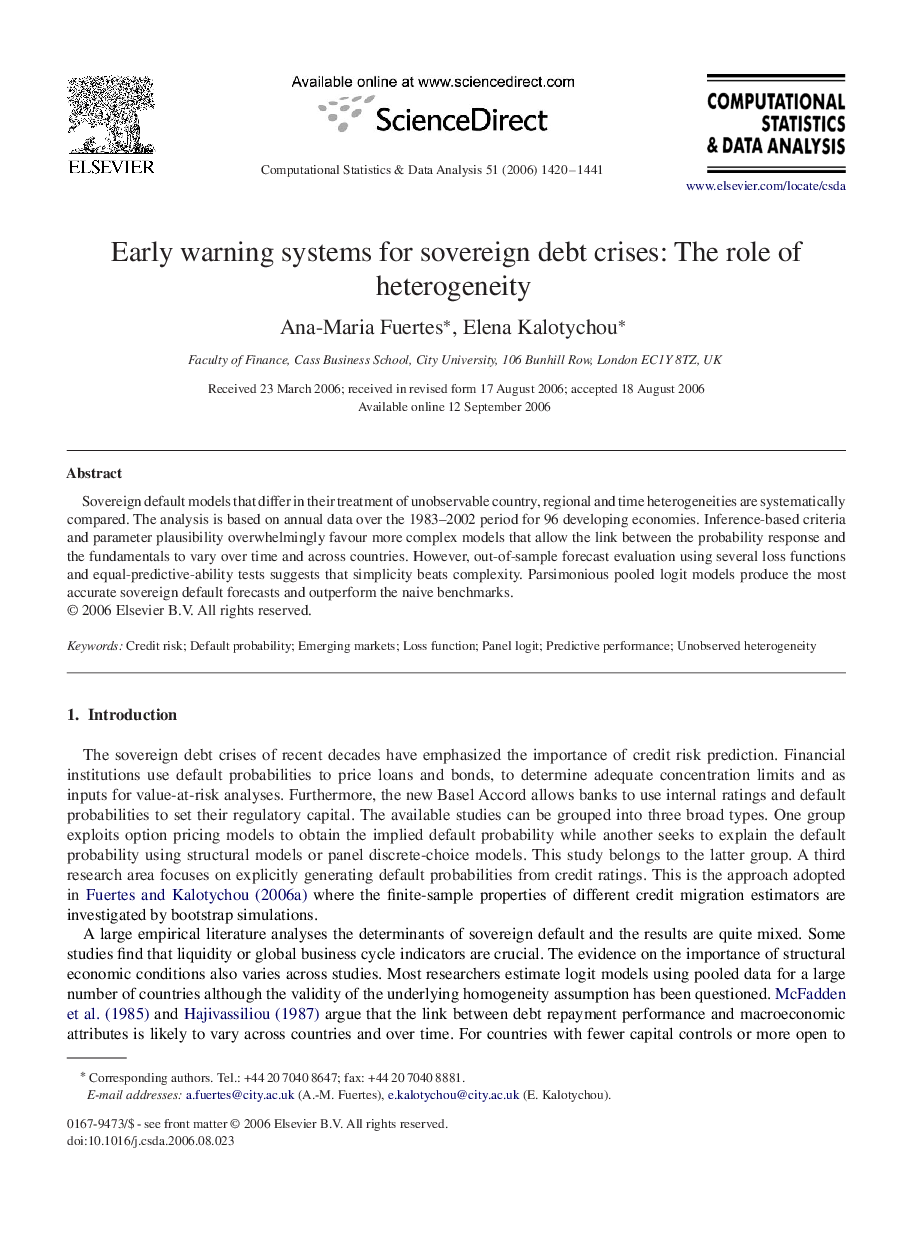| Article ID | Journal | Published Year | Pages | File Type |
|---|---|---|---|---|
| 416769 | Computational Statistics & Data Analysis | 2006 | 22 Pages |
Abstract
Sovereign default models that differ in their treatment of unobservable country, regional and time heterogeneities are systematically compared. The analysis is based on annual data over the 1983–2002 period for 96 developing economies. Inference-based criteria and parameter plausibility overwhelmingly favour more complex models that allow the link between the probability response and the fundamentals to vary over time and across countries. However, out-of-sample forecast evaluation using several loss functions and equal-predictive-ability tests suggests that simplicity beats complexity. Parsimonious pooled logit models produce the most accurate sovereign default forecasts and outperform the naive benchmarks.
Keywords
Related Topics
Physical Sciences and Engineering
Computer Science
Computational Theory and Mathematics
Authors
Ana-Maria Fuertes, Elena Kalotychou,
